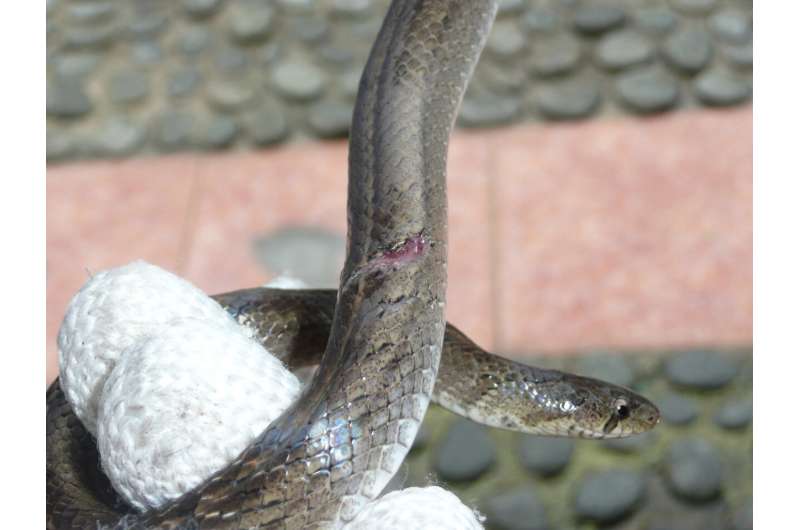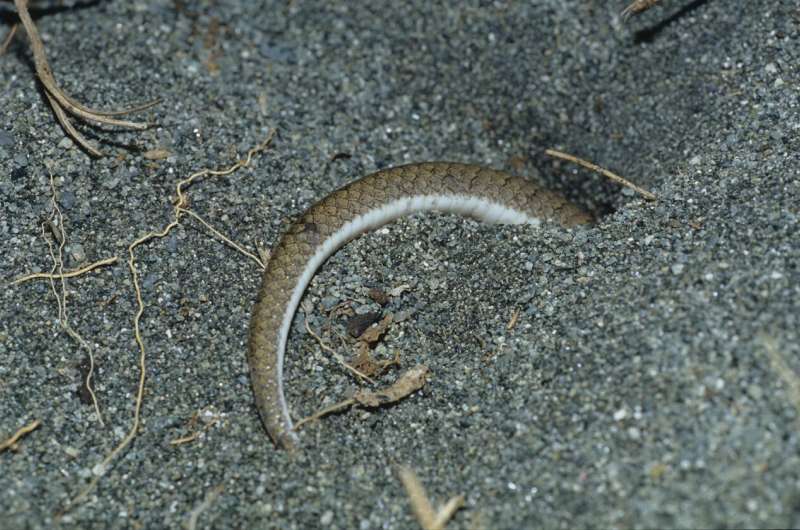April 25, 2019 report
Turtle study shows gender lifespan differences likely due to aggressive tendencies

A team of researchers with members from Taiwan, the U.S., China and the U.K. has found evidence that suggests the reason females of most species live longer than males is because of male aggressive tendencies. In their paper published in the journal Science Advances, the group describes their study of a species of turtle where the females are the aggressors and what they found.
Scientists have been theorizing about the reason for females of most species living longer than males for many years. Some have suggested it has something to do with the differences in hormones, others that it has to do with deleterious mutations in mtDNA passed down from mothers. But the strongest argument has been that it comes down to aggression in males—mostly due to competing for a mate. In many species, fighting for a mate results in both injuries and high stress levels.
In this new effort, the researchers came upon an opportunity to test this last theory quite by accident. They were studying kukri snakes living on Orchid Island, which is just off the coast of Taiwan. The snakes live on the beach, and prior research has shown that the females become territorial because of a major food supply—sea turtle eggs. They actually fight one another while trying to protect their turf. Prior research had also shown that the female snakes tended to have shorter lifespans than the males. Logic had suggested the reason for that was their aggressive behavior—males did not fight each other for eggs, or for a mate.
As the researchers were studying the snakes at two beach locations, one of the beaches was hammered by a large storm—it inflicted so much damage that the sea turtles could not use the beach to lay their eggs. That led to an ideal test environment. The researchers continued to monitor the behavior and lifespan of the snakes living on both beaches and after enough time had passed, compared them. They report that without any eggs to fight over, the females became less aggressive, and unsurprisingly, their average lifespan grew longer.
The researchers suggest their study adds more credence to the theory that it is differences in aggressiveness between genders in most species that lead to females generally living longer.

More information: Chi-Ying Lee et al. When males live longer: Resource-driven territorial behavior drives sex-specific survival in snakes, Science Advances (2019). DOI: 10.1126/sciadv.aar5478
Journal information: Science Advances
© 2019 Science X Network





















